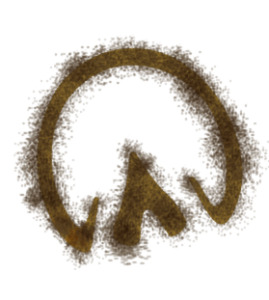Hay Everyone,
Summer is here, and that means trying to combat all of those pesky insects! Did you know one of the most annoying pests to horses during the warmer months is invisible to the naked eye? These tiny flies are referred to as the biting midge, which are scientifically known as Culicoides spp. Because the insects only come out during the late spring and throughout the summer, they cause a seasonal allergy, or hypersensitivity in our four legged friends.
Similar to when we get a bug-bite, horses want to scratch it because it is so itchy! Due to excessive scratching, the allergy is referred to as “sweet itch.” Horses will frequently try to rub their manes and tails, despite our efforts to keep their hair “show ready!” In some severe cases, horses may scratch so hard they cause abrasions along their topline, shoulders, ears, face, and belly. If it is a chronic problem, meaning it persists year after year, it will cause scarring, hyperpigmentation, and hair loss.
If you think your horse is suffering from sweet itch, it is important to call your veterinarian for a professional diagnosis based on clinical signs and skin testing (if deemed necessary). Your veterinarian will be able to prescribe antihistamines, such as hydroxyzine and cetirizine. In fact, cetirizine is the active ingredient in the seasonal human allergy medication “Zyrtec.” Your veterinarian may also prescribe steroids such as prednisolone or dexamethasone. The purpose of these medications is to reduce itching and irritation.
Other treatment tactics include the use of fly sprays. Although there are a lot of fly sprays on the market with fancy colors and scents, don’t be overwhelmed! Studies have shown that sprays with a relatively high concentration of pyrethroid-permethrin are successful in killing insects. In addition, the peak activity for Culicoides spp is at dawn and dusk, so try to keep your horses inside in well-ventilated areas at those times. Not only does ventilation in the summer aid in cooling the horses, it is a crucial factor in insect control, especially since the midges are not strong fliers. Fly masks and sheets can also be effective in repelling these pests! It is important to know Culicoides spp and mosquito larvae develop in standing water, so reducing stagnant water (i.e. ponds, unused water trophs, consistent puddles) will aim to keep the bugs away!
Although insect hypersensitivity in horses is a very itchy condition, it is treatable! As you get in the summer habit of fly spraying your horse, don’t forget to spray yourself before you leave the house! For some other great insect management strategies, take a look at “Taking the Frustration Out of Summer Skin Problems” by Dr. Susan White.
Until next time!
Your Pal,
Lord Nelson

